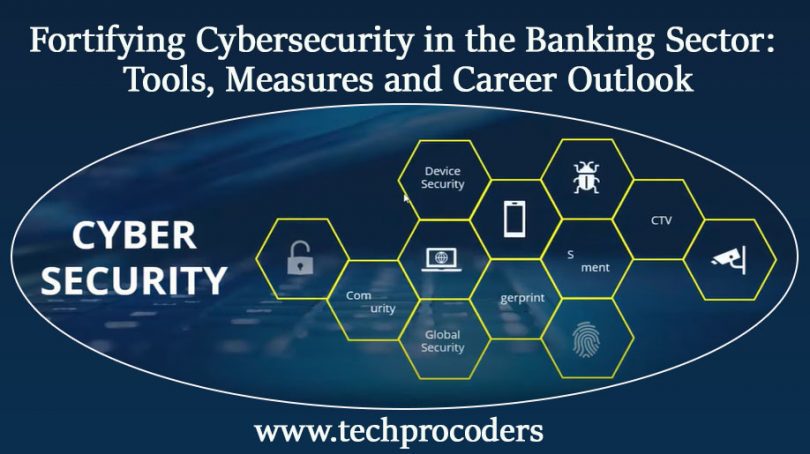The cybersecurity sector has grown significantly in recent years as a result of the increasing frequency and sophistication of cyber attacks, as well as the growing importance of digital security.
Applications of Cybersecurity in Banking:
To protect against evolving cybersecurity threats, the banking sector must implement various measures. Hackers constantly adapt their tactics, developing tools and strategies to compromise security when new defenses emerge. The strength of the financial cybersecurity system relies on its weakest link. Therefore, having a range of cybersecurity tools and approaches is crucial for safeguarding data and systems.
Below are some indispensable cybersecurity tools in the banking sector…
- Network Security Surveillance:
Continuous monitoring of networks is vital to identify any signs of intrusive or malicious activity. This approach frequently enhances the effectiveness of additional security measures, including firewalls, antivirus software and Intrusion Detection Systems (IDS). Network security surveillance can be conducted manually or automatically using dedicated software.
- Software Security:
Application security plays a crucial role in protecting critical business applications. Implementing safeguards such as application whitelisting, code signing and synchronization of security policies with file-sharing rights and multi-factor authentication are all part of the process.
- Risk Management:
Financial cybersecurity encompasses risk management, which involves measures to ensure data integrity, security awareness training and risk analysis. Effective risk management includes assessing potential risks and implementing preventive measures. Data security measures are designed to safeguard sensitive information.
- Protection of Critical Systems:
The use of wide-area network connections helps mitigate attacks on large-scale systems. Adhering to industry-established security standards, this approach enforces security measures on users, servers, and the network, ensuring continuous monitoring and security checks for all programs.
Career Prospects in Cybersecurity within the Banking Sector: Skills, Challenges and Collaboration.
The cybersecurity field within the banking sector offers greater job stability compared to many other professions. According to projections by the Bureau of Labor Statistics (BLS), there is a notable anticipated rise of 33% in employment prospects for information security experts between 2020 and 2030. The banking industry has witnessed exponential growth in the demand for information security, leading to a substantial requirement for professionals capable of effectively safeguarding against cyber threats in this sector.
To excel in cybersecurity within banking, the following skills are essential…
- Critical Problem-Solving in Cybersecurity: Navigating Complex Information Security Challenges.
Problem-solving skills are of paramount importance for a cybersecurity specialist. Individuals in this field must demonstrate the ability to develop innovative solutions to address and resolve complex information security challenges across various technologies and digital environments.
- Technical Proficiency in Cybersecurity: Safeguarding Information Systems and Networks.
Given the nature of cybersecurity, a strong foundation in technology is crucial. Common responsibilities of cybersecurity professionals within the banking sector encompass diagnosing, maintaining, and updating information security systems, as well as implementing continuous network monitoring and delivering real-time security solutions
To successfully fulfill these daily tasks, cybersecurity professionals must possess a strong aptitude for digital technologies and demonstrate digital proficiency.
- Effective Collaboration and Communication in Cybersecurity: Fostering Teamwork and Bridging the Technical Divide.
As a cybersecurity professional, collaboration with individuals from different departments and roles is essential. Clear communication of discoveries, concerns and solutions is vital for effective teamwork. Articulating cybersecurity strategies and policies in a concise and understandable manner is crucial, as is the ability to explain technical concepts to individuals with varying levels of technical expertise.
Summary:
Finally, in the face of increased cyber threats, strengthening cybersecurity in the financial industry is critical. Implementing a variety of cybersecurity tools and procedures, including network security monitoring, software security, risk management and key system protection, is vital to protecting data and systems against developing assaults.
The banking sector’s cybersecurity job future is good, with a predicted 33% growth in employment prospects for information security specialists. Critical problem-solving talents, technical expertise and good teamwork and communication abilities are required for success in this sector. Professionals may help to increase cybersecurity in the banking industry and ensure the safety of sensitive information and financial systems by remaining attentive, adapting to new technologies and promoting teamwork.







